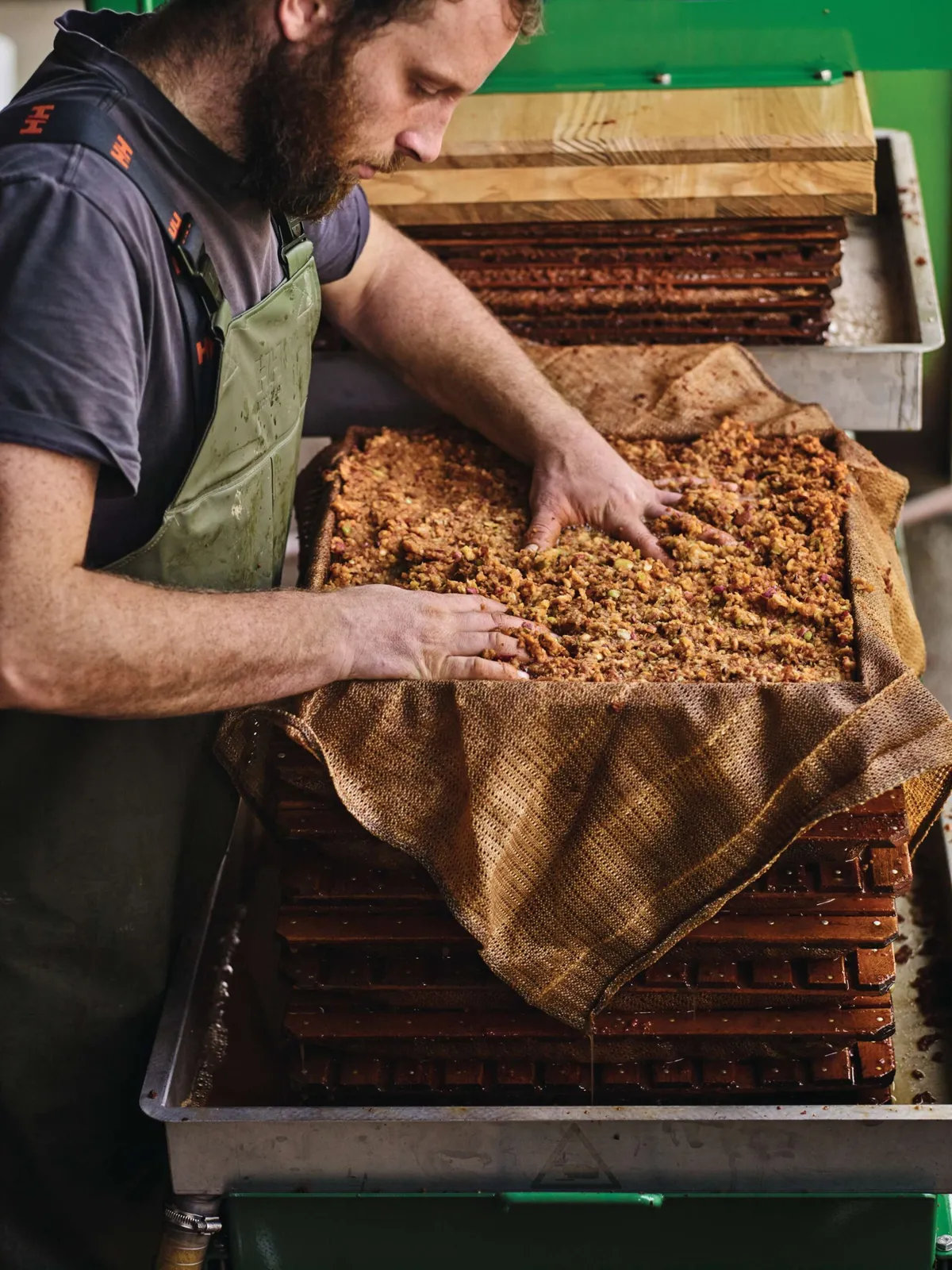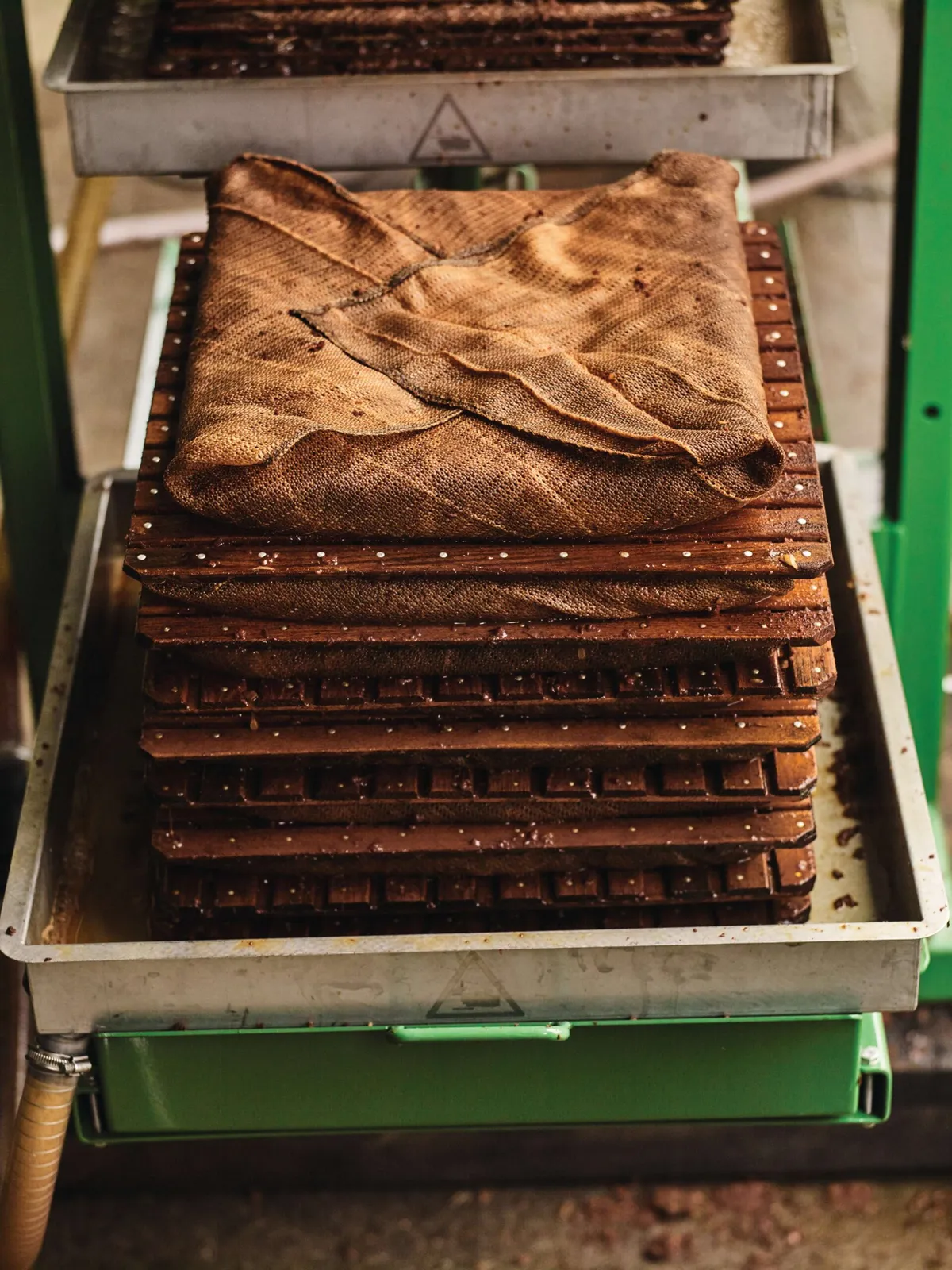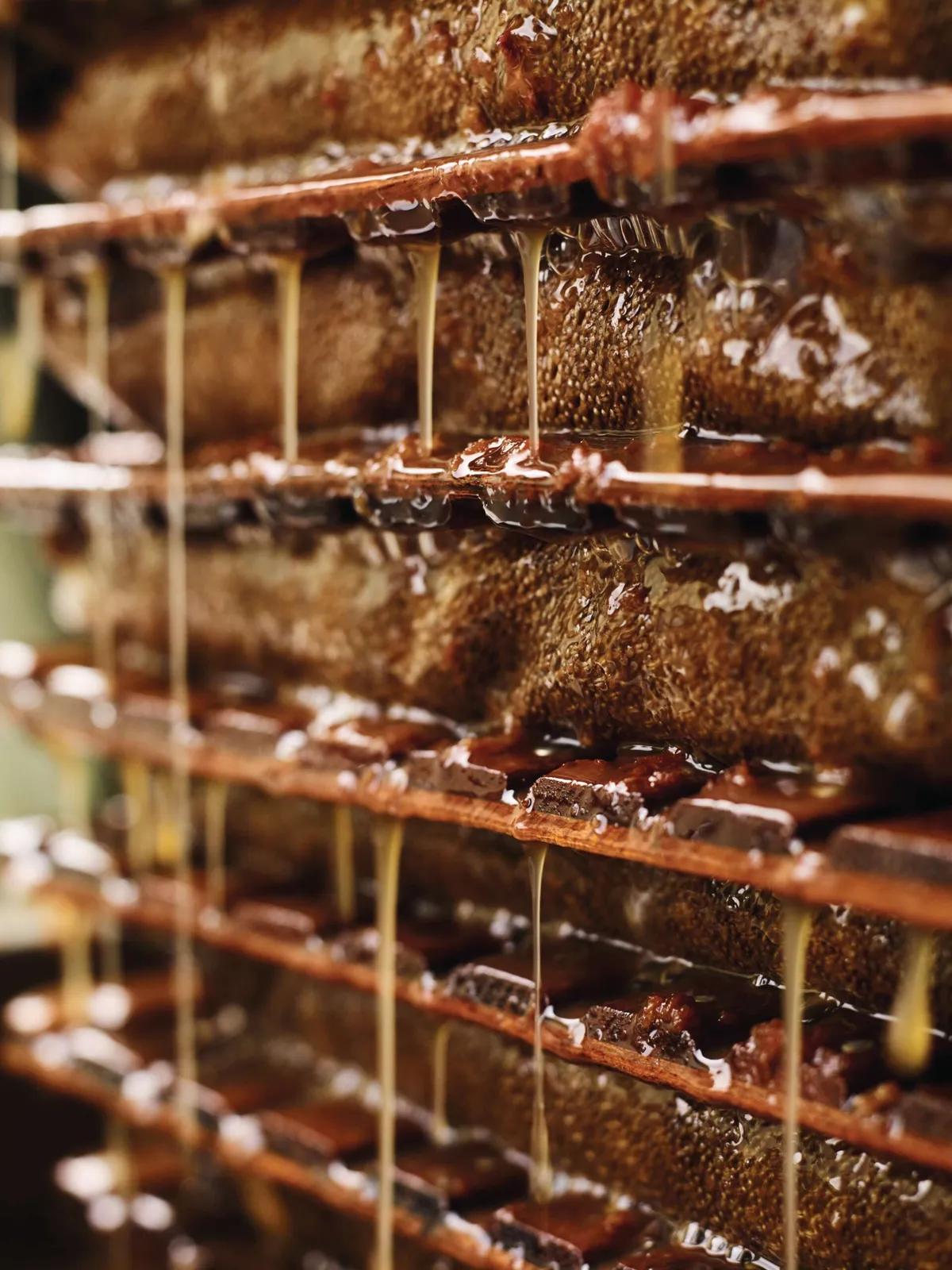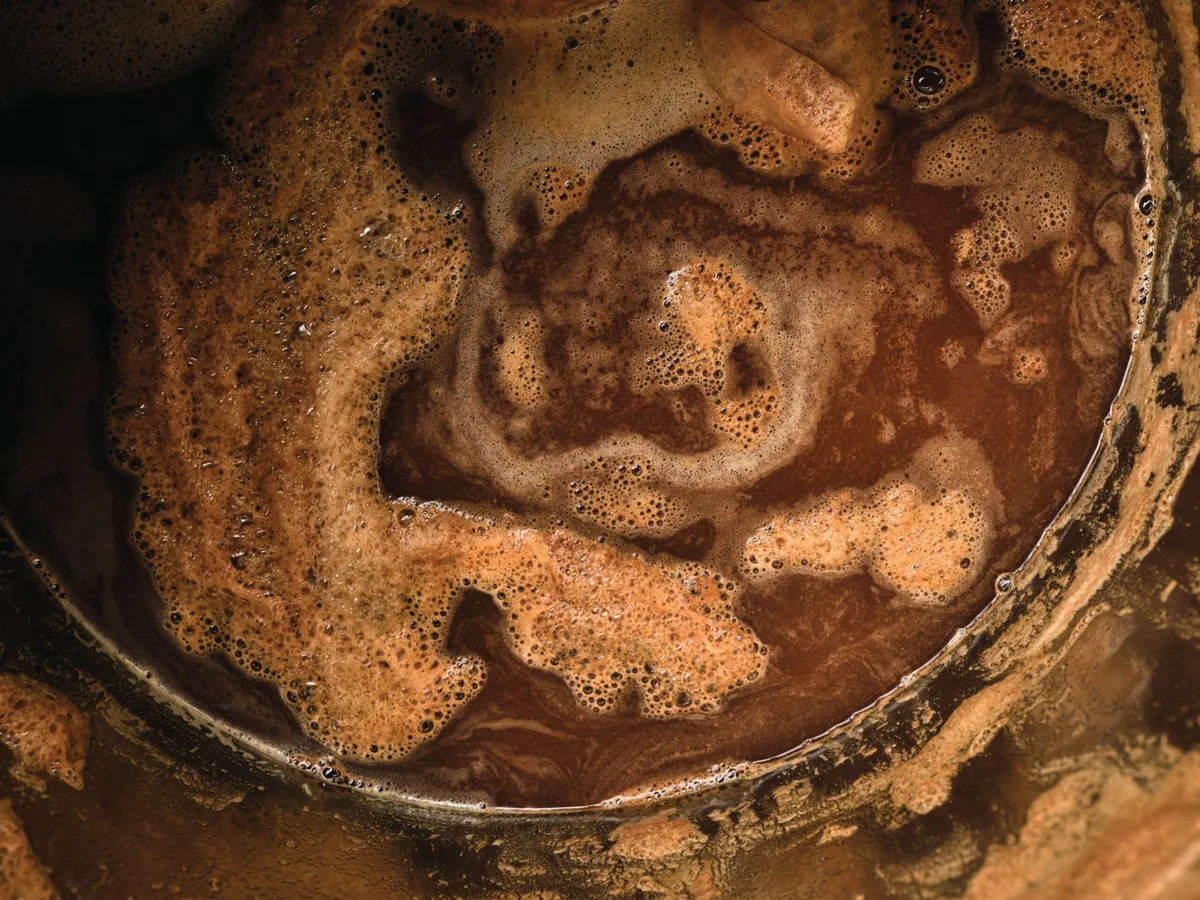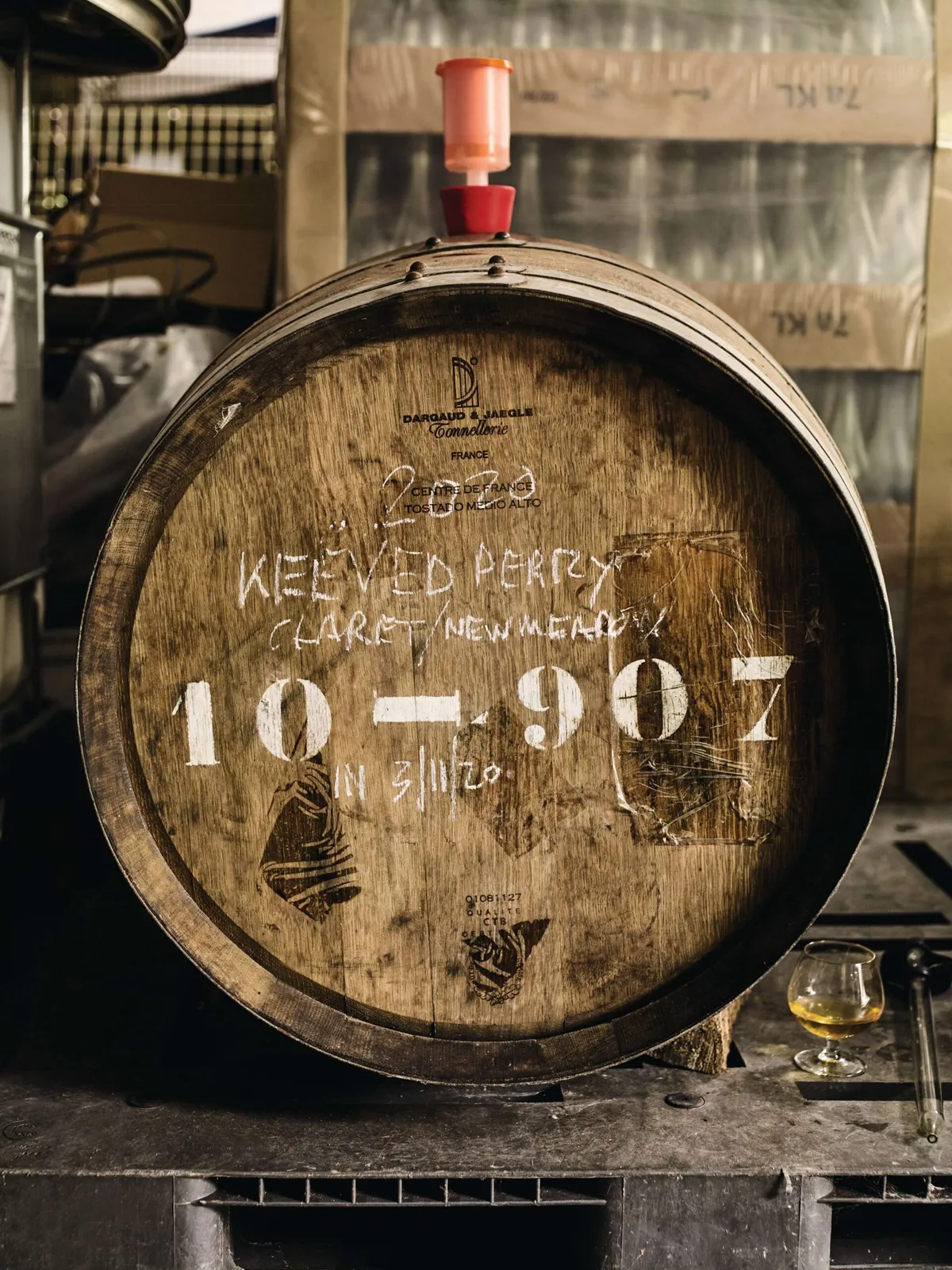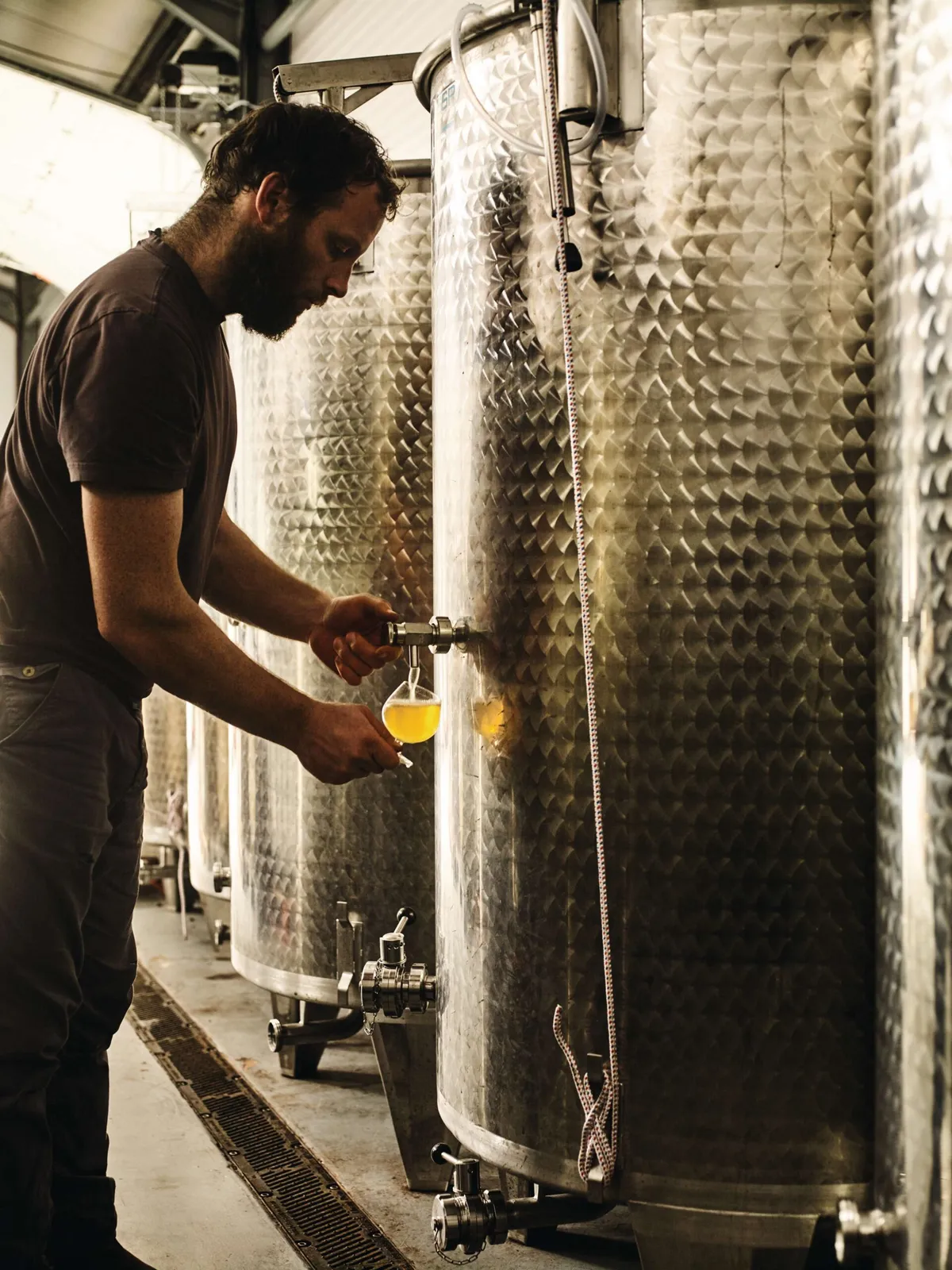Sam and Beccy Leach’s route into cider making came via wine. Sam trained as a chef, and worked at establishments including 40 Maltby Street and St John in London, and on moving to Bristol they paired up to open and run the hugely loved Birch in south Bristol. They became increasingly interested in serving natural wines: wine made using simple or traditional methods.
“For holidays we would take a tent and visit our favourite natural wine producers. It struck me as a really nice life,” says Sam. One of the Italian producers had no land of his own and rented parcels of old neglected vines. “Something just clicked. If I had grown up in the Languedoc I would have wanted to make red wine and if I’d been born in Scotland I might have wanted to make Scotch. But I grew up in Somerset, surrounded by cider orchards. Here cider making is the logical thing to do.”
They started making cider from the apples in a friend’s garden, found they loved it, and created Wilding Cider.
Cider apples are indeed perfectly suited to Somerset. They grow well on its clay soils and flower late, so missing late frosts, plus they are thick skinned and hard, which means they can be left to reach full ripeness and flavour and then fall naturally to the ground before being harvested.

But old orchards are in decline. Many were planted up between the 1950s and 1960s to provide apples for the big factory cider makers, such as Thatchers, Taunton Cider and Coates Cider. Over time these big producers have changed their methods and often source apples and juice elsewhere, leaving the apple growers with little reason to invest in their maintenance and nowhere to sell their apples, instead leaving them to rot on the trees.
I grew up in Somerset, surrounded by cider orchards. Here cider making is the logical thing to do.
Wilding Cider now manages several old apple orchards in addition to its own orchard at Chew Magna. From autumn to Christmas the work is all in harvesting, juicing and making cider, but for the rest of the winter they undertake renovation pruning and a programme of ‘top working’: grafting their chosen cultivars on to old trees.
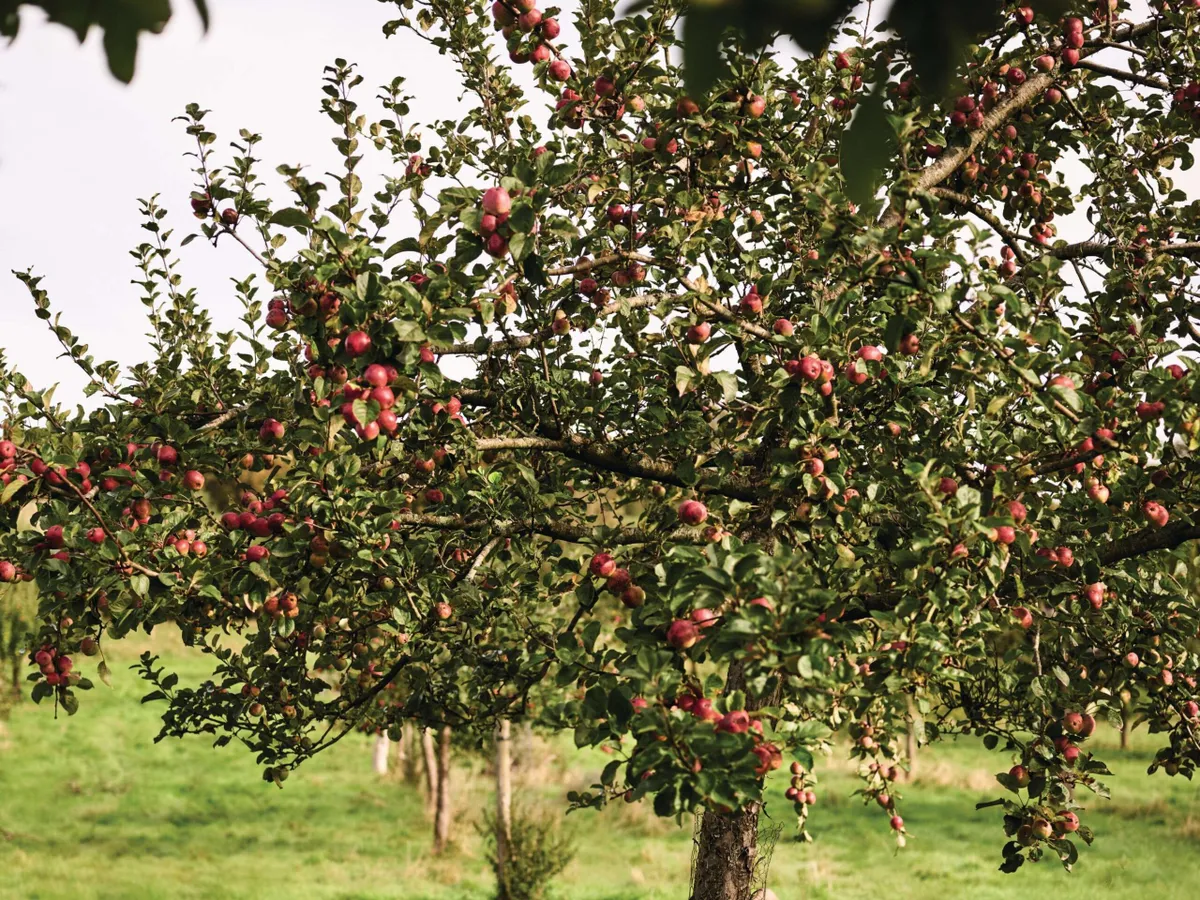
The big cider makers lean strongly towards ‘bittersweets’ (apples with low acid and high tannin) and Sam is trying to shift the balance of cultivars towards those he finds more useful for natural cider making, following bio-dynamic principles.
The juice is fermented by wild yeasts.
“We don’t add anything to our juice. It is fermented by wild yeasts and we don’t pasteurise, filter or refine, and that means that the acidity needs to be just right.” Sam has found that ‘bittersharps’ (high acid and high tannin) create the right acidity and the most interesting flavours, and has top worked well-known bittersharp cultivars such as ‘Kingston Black’ and ‘Stoke Red’ on to the trees at their home farm, as well as local and more obscure cultivars such as ‘Gin’, ‘Backwell Red’ and ‘Court Wick’.
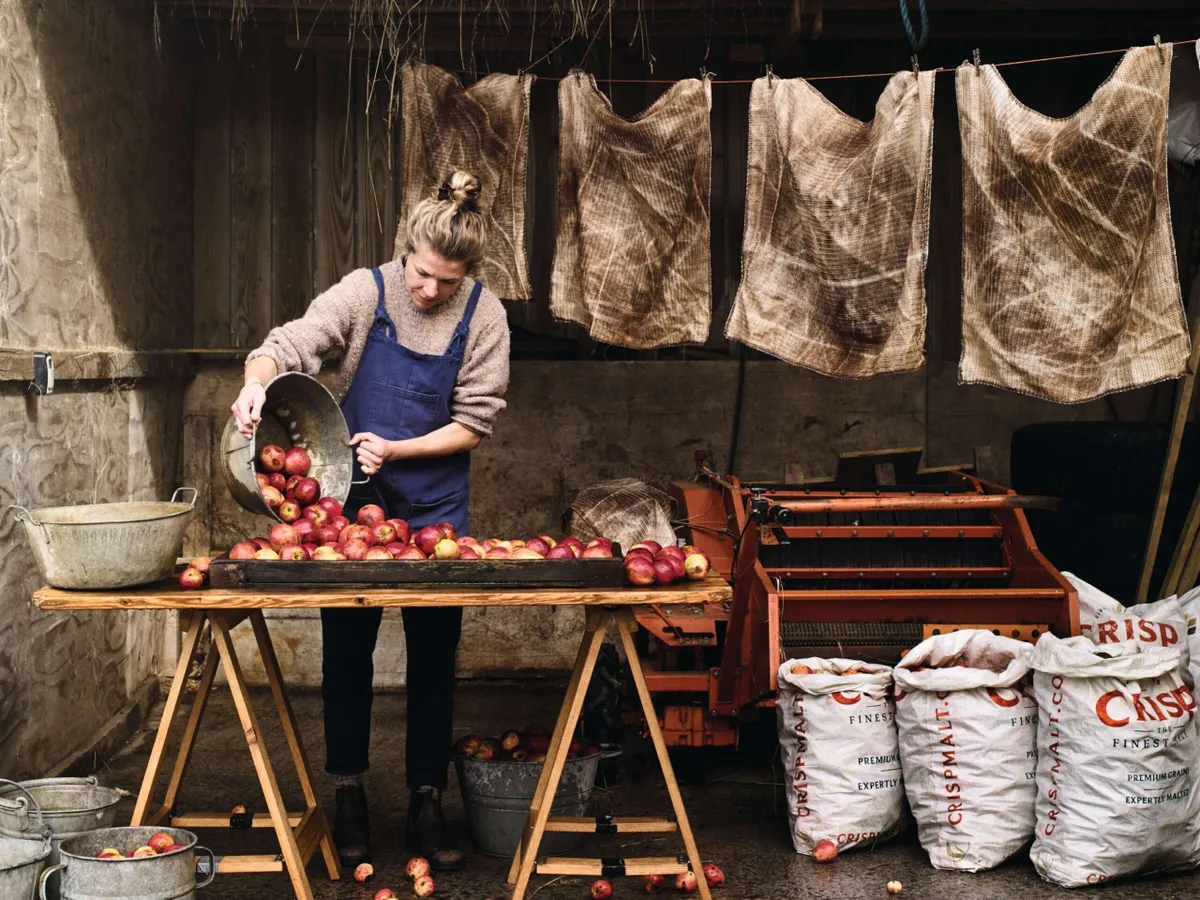
Beccy has begun to bring sheep in to graze beneath the trees in the summer, part of a determination to farm sustainably. “The sheep keep the grass the perfect length and trample it to create a cushion for the apples to land on, and the grass feeds the sheep; a good, productive system.
Natural cider is by far the most sustainable, regenerative drink you will find
"Cider apple farming can be genuinely regenerative. The trees grow for 100 years, with all of that carbon locked away throughout. There are no inputs and it is wonderful for wildlife. Natural cider is by far the most sustainable, regenerative drink you will find.”
They are delighted to have found a way to combine the nurturing of this historic landscape with the creation of such a special product. “What we are doing is a part of the landscape here. Within living memory orchards were thriving, but they almost died, along with the skills around them. We are just in time to save the remnants.”
Useful information
Sam and Beccy sell cider and other farm produce at the farm gate every second Saturday from April to September. Find out more at wildingcider.co.uk
